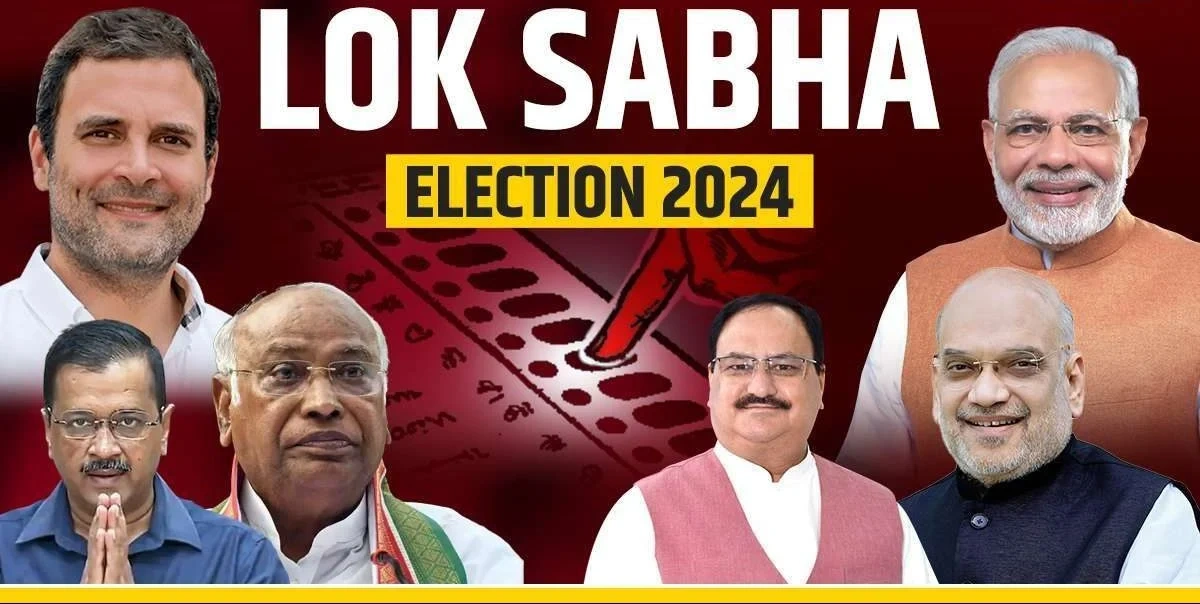Introduction
One of the most important occasions in the biggest democracy in the world is the Lok Sabha election in India. The country is getting ready for a high-stakes fight that will decide its political destiny for the next five years as the 2024 election draws near. This election is about more than just selecting the next Prime Minister; it's also about determining India's future direction, its position on international affairs, and the welfare of more than a billion people. We will examine the important variables, prominent candidates, and potential results of the Indian Lok Sabha election in 2024 in this blog.
Historical Context
It is vital to examine the 2019 election in order to comprehend the importance of the 2024 election. With a sizable majority, the Bharatiya Janata Party (BJP), led by Narendra Modi, won handily. Their emphasis on nationalism, economic reforms, and a strong central leadership have been the defining features of their dominance since 2014. Retrospection and requests for reorganisation resulted from the opposition's inability to mount a serious challenge, led mostly by the Indian National Congress (INC).
Key Players and Alliances
Bharatiya Janata Party (BJP)
With Narendra Modi at the helm, the BJP is still a powerful force. Their approach is centred on national security, economic reforms, and a strong leadership position. In order to increase its electoral footprint, the party has also been skilled at creating tactical partnerships with smaller parties.
Indian National Congress (INC)
The difficult task ahead for Rahul Gandhi's INC is to reenergize the party's base and offer a competitive alternative to the BJP. In an effort to connect with voters, the party has been emphasising topics like social justice, unemployment, and agricultural hardship. But the capacity to forge coalitions and the dynamics within the party will be critical.
Regional Parties
The Lok Sabha elections are heavily influenced by regional parties, such as the Dravida Munnetra Kazhagam (DMK) in Tamil Nadu, the Aam Aadmi Party (AAP) in Delhi, and the Trinamool Congress (TMC) in West Bengal. Their connections have the ability to tip the scales in state politics, where their influence is frequently decisive.
Key Issues
Economic Performance
India's economic standing is a crucial electoral issue every time. The electorate will be closely monitoring the post-pandemic recovery, inflation, GDP growth, and job creation. The opposition will concentrate on the weaknesses and areas that require improvement, while the BJP will promote its economic policies and reforms.
Social Justice and Equality
Social justice concerns are important and include minority rights, gender equality, and discrimination based on caste. It is probable that the opposition parties, including the INC, would highlight these concerns and charge the BJP of widening societal gaps.
National Security
Terrorism and national security have played major roles in past elections. One of the main things that makes the BJP appealing is its firm position on national security. Any events or developments pertaining to national security may have a big impact on voter attitude.
Agrarian Distress
Farmers' difficulties have become more public, particularly in the wake of the demonstrations against the agricultural laws. Concerns about MSP (Minimum Support Price), rural development, and agricultural reforms will need to be addressed by both the BJP and the opposition.
Governance and Corruption
Important concerns are administration free from corruption and with good governance. The opposition places more emphasis on decentralised accountability and governance than does the BJP on strong, centralised leadership.
Campaign Strategies
BJP’s Campaign
The public appeal and reputation of Narendra Modi as a decisive leader are anticipated to be used by the BJP. Their campaign will probably showcase victories in foreign policy, digital India, and infrastructure development. Their campaign plan will heavily rely on the usage of social media and technology.
INC’s Campaign
The campaign of the INC will centre on relating to the average person, combating unemployment, and emphasising subjects such as healthcare and education. Rahul Gandhi's capacity to engage with youth and his outreach activities will be crucial.
Role of Social Media
Election campaigns now heavily rely on social media. Digital media will be heavily utilised in the 2024 election for real-time communication, opinion shaping, and voter outreach. To sway youthful, tech-savvy voters, both main parties will massively invest on digital ads.
Possible Outcomes and Scenarios
BJP’s Victory
The continuation of present policies, which prioritise national security, economic reforms, and a powerful central government, will probably result from a BJP victory. To stay popular, they would have to deal with social turmoil and economic difficulties.
Coalition Government
Should no party obtain a majority, a coalition government may come into existence. This situation can result in a more fair representation of regional and national interests, but it also frequently leads to a more dispersed and indecisive government structure.
INC’s Resurgence
A win for the INC or notable progress would signal a change in policy towards decentralised governance, economic equality, and social fairness. The party would have to prove that it could lead in a steady and efficient manner.
Conclusion
The Indian Lok Sabha election of 2024 is anticipated to be a pivotal event in the political history of the nation. The result will depend on how campaign tactics, social issues, national security, and economic performance interact. The future of India's political trajectory is at risk as the largest democracy in the world prepares for elections. The 2024 election will serve as a monument to the complexity and vitality of Indian democracy, regardless of the result.





Leave a Reply